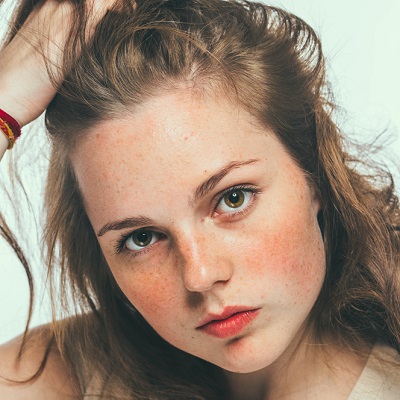Freckles And Blemishes - Abu Dhabi - Dubai
Freckles and blemishes are common skin conditions that affect many individuals. Here's some information about them:
- 1. Freckles: Freckles are small, flat spots on the skin that are typically tan, brown, or reddish in color. They are caused by an increased production of melanin, the pigment responsible for the color of our skin, hair, and eyes. Freckles are usually more prominent in individuals with fair or light skin tones and tend to darken with sun exposure. They are most commonly found on areas of the body that are exposed to the sun, such as the face, arms, and shoulders.
- 2. Blemishes: Blemishes are a general term used to describe various skin imperfections, such as acne, pimples, dark spots, and scars. They can occur due to a variety of factors, including hormonal changes, excess oil production, clogged pores, bacteria, and inflammation. Blemishes can be temporary or long-lasting, and their severity can vary from person to person.
It's important to note that while freckles and blemishes are generally harmless, it's always a good idea to monitor any changes in their appearance or consult a dermatologist if you have concerns. Dermatologists are medical professionals who specialize in treating skin conditions and can provide personalized advice and treatment options based on your specific situation.
In terms of managing freckles and blemishes, here are some general tips:
- • Sun protection: Since sun exposure can darken freckles and worsen blemishes, it's crucial to protect your skin from the sun's harmful UV rays. Use sunscreen with a high SPF, wear protective clothing, and seek shade when the sun is at its strongest.
- • Skincare routine: Develop a regular skincare routine that includes cleansing, exfoliating (to remove dead skin cells), and moisturizing. Look for skincare products that are suitable for your skin type and address specific concerns like acne or hyperpigmentation.
- • Spot treatments: Depending on the type and severity of your blemishes, you may consider using over-the-counter spot treatments containing ingredients like benzoyl peroxide or salicylic acid. These can help reduce inflammation and promote healing.
- • Makeup: If you wish to conceal freckles or blemishes temporarily, you can use makeup products like foundation, concealer, or tinted moisturizers. Choose products that match your skin tone and opt for non-comedogenic (non-pore-clogging) formulations.
Remember, everyone's skin is unique, and what works for one person may not work for another. If you're unsure about the best approach to managing your freckles or blemishes, it's recommended to consult a dermatologist who can provide tailored advice and recommend appropriate treatments or skincare products for your specific needs.

